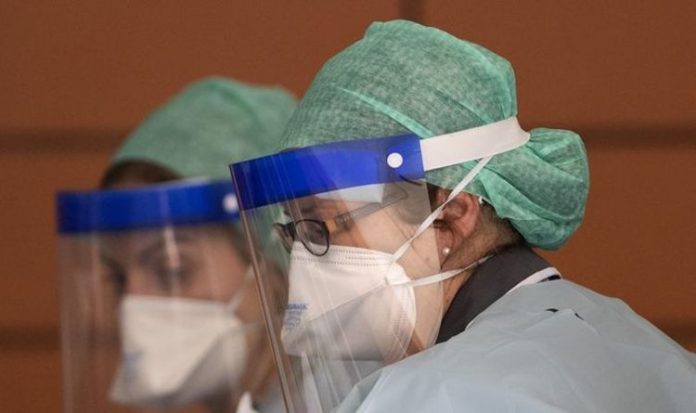Surgeons are calling for a network of hospital hubs focused on routine surgery to help tackle the mammoth waiting lists as a result of the Covid pandemic.
The Royal College of Surgeons (RCS) believe there should be around 40 centres based in existing NHS buildings to carry out non-urgent surgery.
It is hoped that by bringing specialist teams together in one building, there would be greater efficiency and better use of operating theatres.
Although patients might need to travel further from their local hospitals, the RCS says its own polling suggests most would support the idea if it reduced waiting times.
In March, around five million patients in England were waiting for surgery – the highest number since modern records began, with more than 436,000 patients waiting more than a year to be seen, according to NHS England figures show.
This is compared with just 1,600 before the Covid crisis, the BBC reported.
A similar percentage of the population is on waiting lists in Scotland and a higher percentage in Wales and Northern Ireland.
Prof Neil Mortensen, president of the RCS, told the broadcaster that surgery “must be available on the NHS all year round, not stop and start,”
He added that a “new deal for surgery” was required to help combat future pandemics.
“If a dangerous new variant of Covid-19 takes hold, or another bad flu arrives in the autumn, we cannot allow surgery to grind to a halt again or waiting lists will become insurmountable,” he continued.
But the government says it is working “to accelerate the recovery of services.”
A Department of Health and Social Care spokesman told the BBC: “We have backed the NHS at every point in the pandemic, safeguarding urgent treatment such as cancer and emergency care, while protecting the NHS to ensure it was not overwhelmed.”
He said the government was providing “an extra £7bn for health and care services” this year, and £1bn to tackle backlogs.
“We face an unprecedented challenge and will continue to work closely with the NHS to accelerate the recovery of services so everyone gets the care they need, including £160m to support hospitals to find innovate ways to carry out even more operations and cut waiting lists,” he added.







